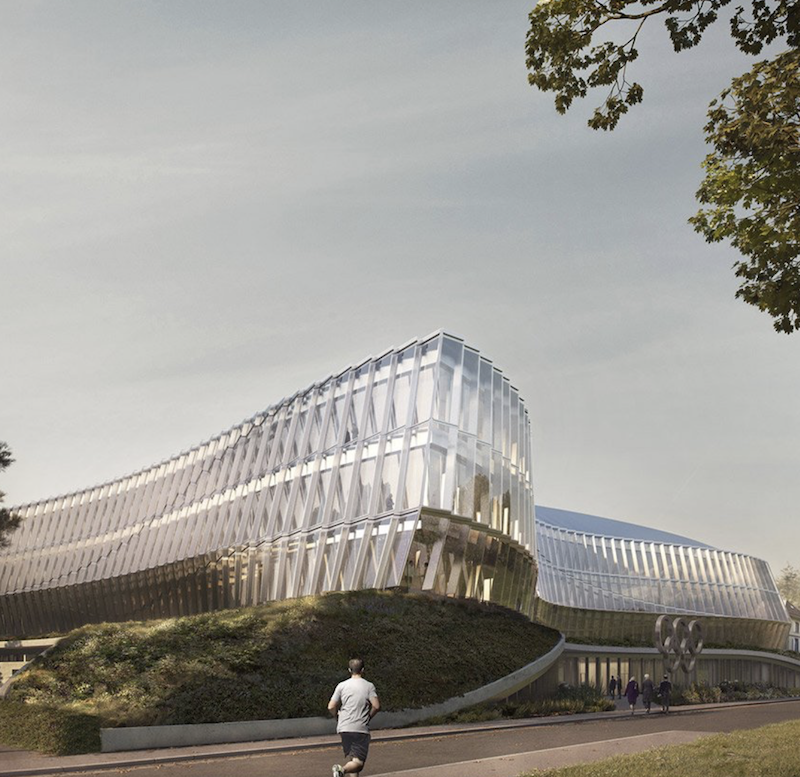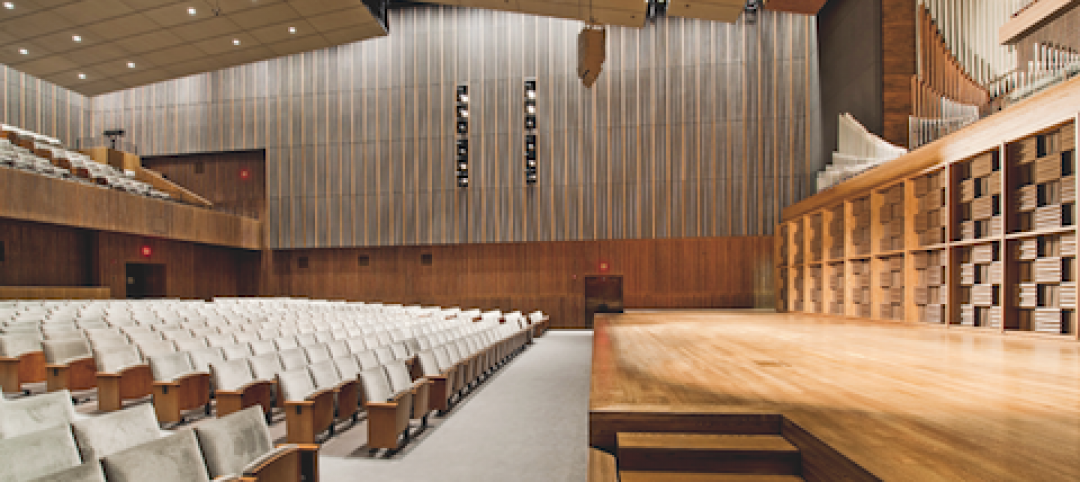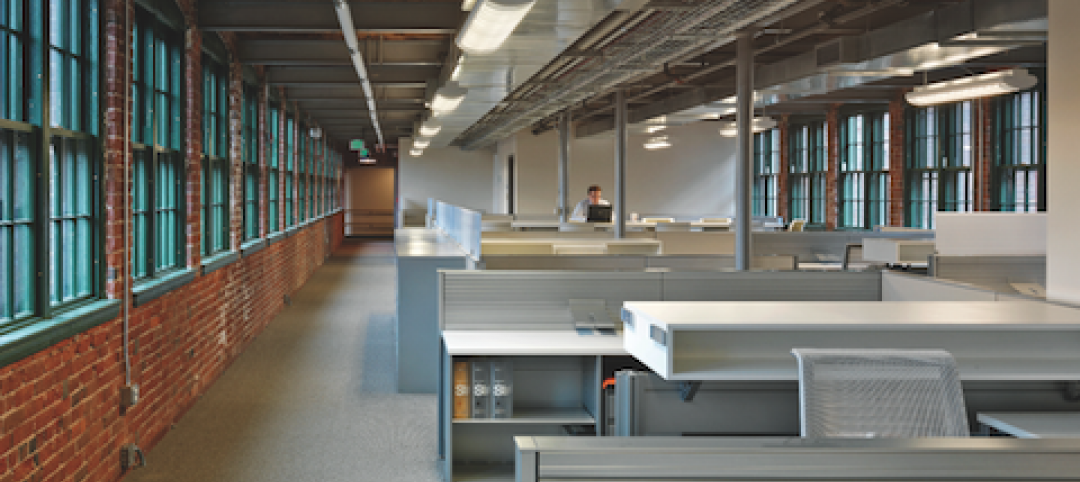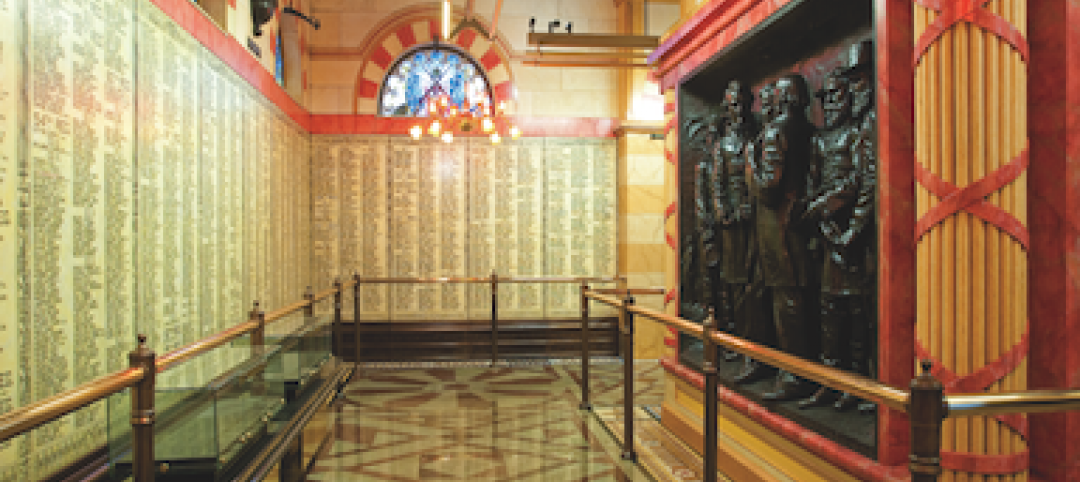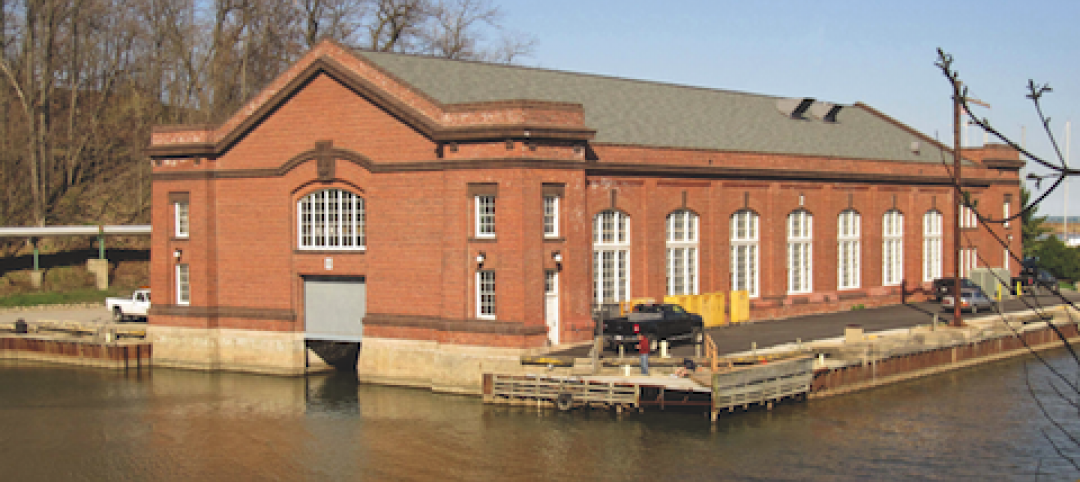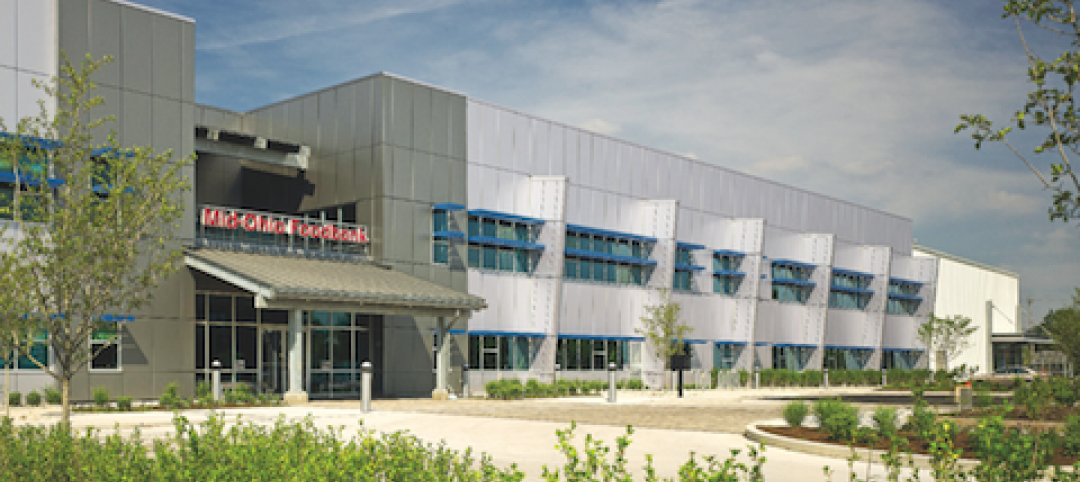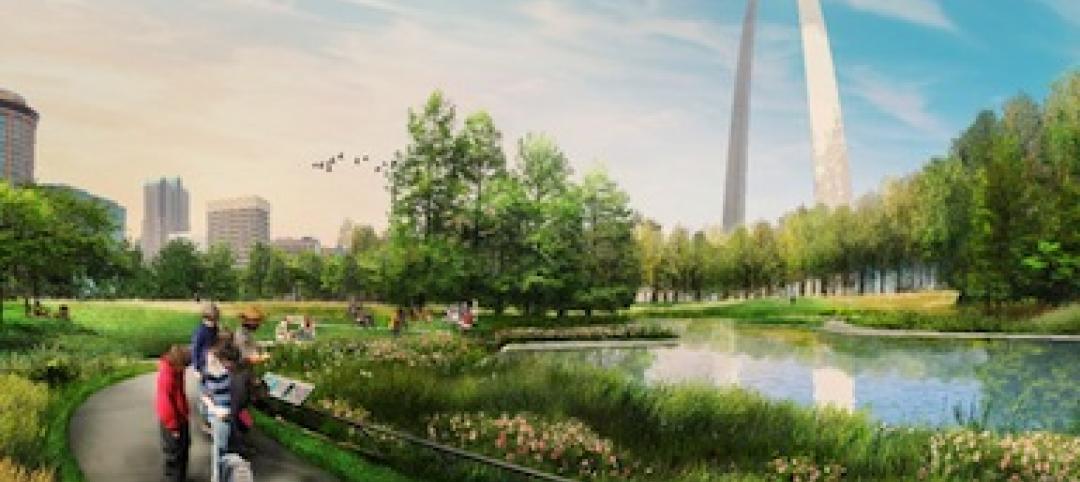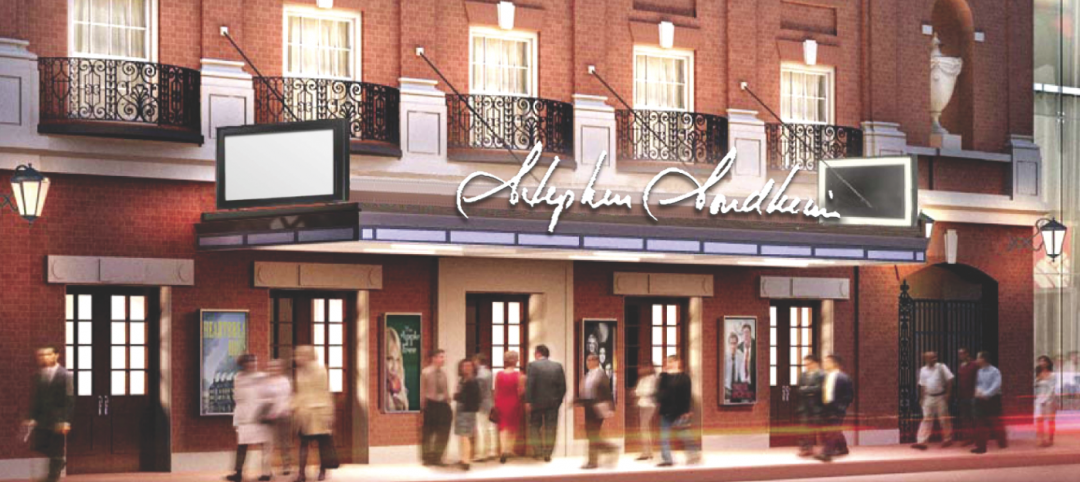On June 23, the International Olympic Committee (IOC) will inaugurate Olympic House, its new headquarters building in Lausanne, Switzerland, whose construction is nearing completion.
The building will allow the IOC to consolidate its staff of more than 500 people, who are currently scattered across several buildings in Lausanne. The design of the new building—by the architectural firms 3NX and IttenBrechbühl—reflects the Committee’s values and mission, according to Thomas Bach, IOC’s president.
Last week, Bach and Kim Herforth Nielsen, 3XN’s cofounder and Principal, presented a preview of Olympic House to the business press at The Plaza Hotel in New York.
The 145 million Swiss Franc (US$146 million) building, with 22,000 sm (236,806 sf) of usable space, will be located within Louis Bourget Park, one of Lausanne’s largest. Part of the park has been incorporated into the building’s design, whose key objectives correspond with the Olympics’ principles of movement, transparency, flexibility, sustainability, and collaboration.
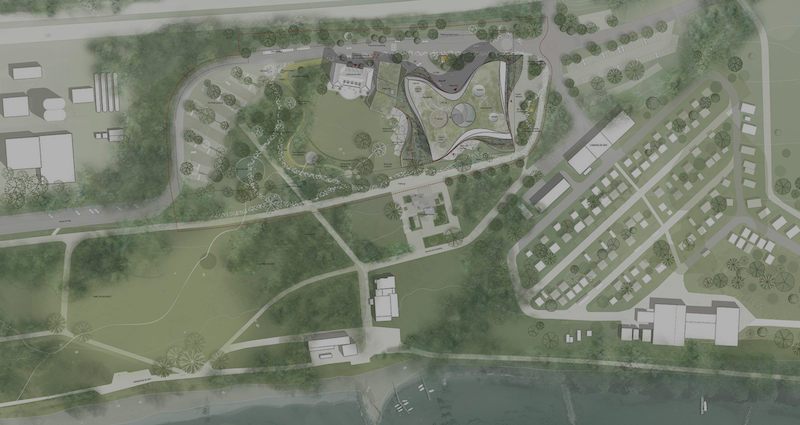 Olympic House is situated within one of Lausanne's largest parks. Image: 3XN
Olympic House is situated within one of Lausanne's largest parks. Image: 3XN
“It’s important to have a story when designing a building,” said Nielsen of Copenhagen-based 3XN, whose design for Olympic House was selected by the IOC Executive Board from 114 entries.
For example, the top of Olympic House is shaped, symbolically, like a dove, representing peace. And in the building’s basement will be a sculpture of an olive tree.
The building façade’s undulating flow pays tribute to athletic movement. The building’s interior—which is supported by only four service cores and 14 pillars—speaks to its structural flexibility. Olympic House is also striving to meet international sustainability standards established by LEED, Minergie (the Swiss energy standard), and SNBS (the Swiss sustainable building standard).
A pumping station will draw water from nearby Lake Geneva to cool and heat the building. Solar panels on the roof will generate 10% of the building’s electricity use, equivalent to the consumption of 60 Swiss households. Olympic House’s shape optimizes daylight coming into the building. The facility will also collect rainwater to recycle for plant irrigation and toilet flushing. (The building’s water consumption is expected to by 60% of a comparable office building.)
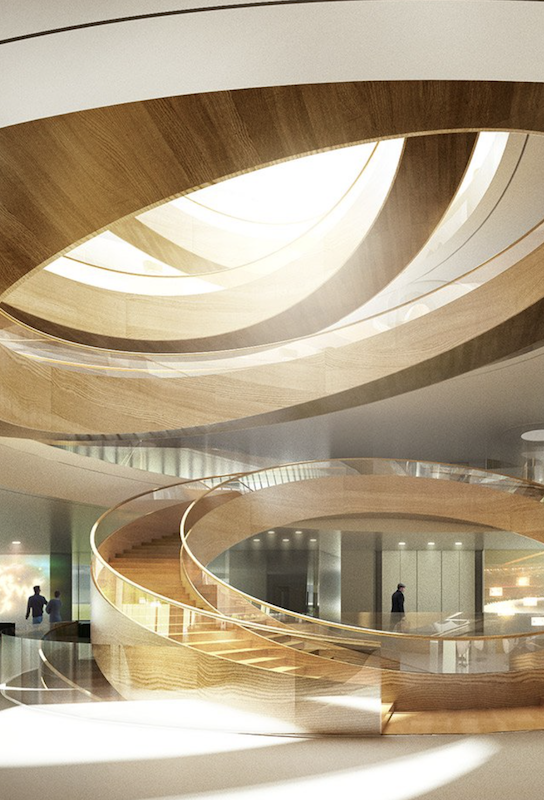
A steel-and-wood-clad circular staircase is designed to suggest the five Olympic rings. Image: 3XN
One of the more striking design features of Olympic House is its steel-and-wood-clad Unity Staircase, which soars the full height of the building. Intended to reference the five Olympic rings, the staircase will unify the building’s floors. It is being presented as a visual expression of collaboration between IOC and its stakeholders. (Worldwide, there are 206 national Olympic committees.)
IOC is also collaborating with three worldwide Olympic partners: Dow, which is helping the Committee achieve its carbon neutrality goals; Toyota, which is developing a pilot program to install hydrogen stations in Switzerland for vehicles powered by fuel cells; and Panasonic, which is supplying A/V equipment for Olympic House’s meeting rooms.
IOC’s investment in this project includes the renovation of Le Château de Vidy, an 18th Century castle located within Olympic House’s public space.
Founded in Paris in 1894, IOC has undergone several significant reforms under the leadership of the 65-year-old Bach, a German lawyer and Olympic gold medalist in fencing, who became the Committee’s ninth president in September 2013. These reforms include a commitment to publishing an annual financial report, strengthening the role of its Ethics Committee, and auditing national committees that receive money from IOC. The organization is committed to redistributing 90% of its annual revenue to athletes from developing countries.
Related Stories
| Oct 12, 2010
Richmond CenterStage, Richmond, Va.
27th Annual Reconstruction Awards—Bronze Award. The Richmond CenterStage opened in 1928 in the Virginia capital as a grand movie palace named Loew’s Theatre. It was reinvented in 1983 as a performing arts center known as Carpenter Theatre and hobbled along until 2004, when the crumbling venue was mercifully shuttered.
| Oct 12, 2010
Gartner Auditorium, Cleveland Museum of Art
27th Annual Reconstruction Awards—Silver Award. Gartner Auditorium was originally designed by Marcel Breuer and completed, in 1971, as part of his Education Wing at the Cleveland Museum of Art. Despite that lofty provenance, the Gartner was never a perfect music venue.
| Oct 12, 2010
The Watch Factory, Waltham, Mass.
27th Annual Reconstruction Awards — Gold Award. When the Boston Watch Company opened its factory in 1854 on the banks of the Charles River in Waltham, Mass., the area was far enough away from the dust, dirt, and grime of Boston to safely assemble delicate watch parts.
| Oct 12, 2010
Cuyahoga County Soldiers’ and Sailors’ Monument, Cleveland, Ohio
27th Annual Reconstruction Awards—Gold Award. The Cuyahoga County Soldiers’ and Sailors’ Monument was dedicated on the Fourth of July, 1894, to honor the memory of the more than 9,000 Cuyahoga County veterans of the Civil War.
| Oct 12, 2010
Building 13 Naval Station, Great Lakes, Ill.
27th Annual Reconstruction Awards—Gold Award. Designed by Chicago architect Jarvis Hunt and constructed in 1903, Building 13 is one of 39 structures within the Great Lakes Historic District at Naval Station Great Lakes, Ill.
| Oct 12, 2010
From ‘Plain Box’ to Community Asset
The Mid-Ohio Foodbank helps provide 55,000 meals a day to the hungry. Who would guess that it was once a nondescript mattress factory?
| Sep 22, 2010
Michael Van Valkenburg Assoc. wins St. Louis Gateway Arch design competition
Landscape architect Michael Van Valkenburgh and a multidisciplinary team of experts in “urban renewal, preservation, commemoration, social connections and ecological restoration” have been picked for the planning phase of The City+The Arch+The River 2015 International Design Competition.
| Sep 13, 2010
Second Time Around
A Building Team preserves the historic facade of a Broadway theater en route to creating the first green playhouse on the Great White Way.


